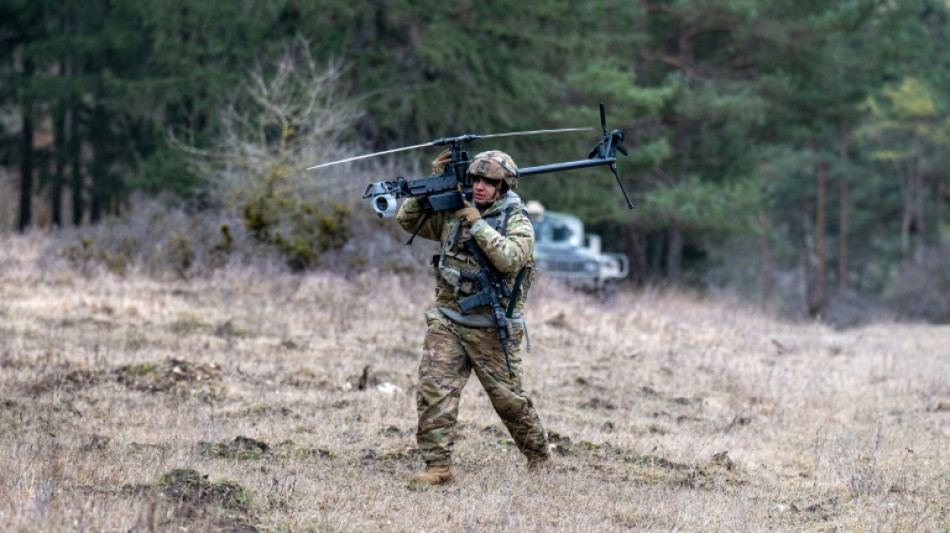
-
 Facing a broken economy, Ghana's tech-savvy teens turn to fraud
Facing a broken economy, Ghana's tech-savvy teens turn to fraud
-
Trump says ordering '100% tariff' on all movies produced abroad

-
 Victorious Australian PM holds 'warm' chat with Trump
Victorious Australian PM holds 'warm' chat with Trump
-
Inoue knocked down but stops Cardenas in eighth to keep crown

-
 Pacers shock Cavs, Warriors shoot down Rockets to advance in NBA playoffs
Pacers shock Cavs, Warriors shoot down Rockets to advance in NBA playoffs
-
'Bombshell' OPEC+ output hike hits oil price

-
 Basketball bust-ups threaten ambitious Japan's hoop dreams
Basketball bust-ups threaten ambitious Japan's hoop dreams
-
Red sunset: India's bloody push to crush Maoist revolt

-
 Huthis report US strikes after Israel vows revenge for airport attack
Huthis report US strikes after Israel vows revenge for airport attack
-
South African men, New Zealand women win Rugby Sevens World Championships in LA

-
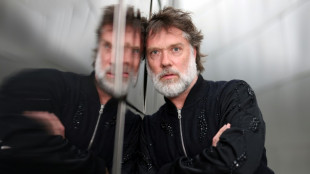 Rufus Wainwright's 'Dream Requiem' explores catastrophe and redemption
Rufus Wainwright's 'Dream Requiem' explores catastrophe and redemption
-
Pacers shock Cavs in NBA playoff series opener

-
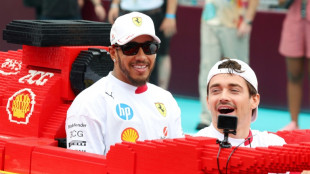 'Sarcastic' Hamilton shows frustration as Ferrari struggle again
'Sarcastic' Hamilton shows frustration as Ferrari struggle again
-
Three in a row Piastri wins in Miami to lead McLaren one-two

-
 Scheffler ties 72-hole PGA record in CJ Cup Byron Nelson romp
Scheffler ties 72-hole PGA record in CJ Cup Byron Nelson romp
-
Nicaragua says quitting UNESCO over press prize award

-
 Oscar Piastri wins Miami Grand Prix to lead McLaren one-two
Oscar Piastri wins Miami Grand Prix to lead McLaren one-two
-
Bednarek runs this year's world-best 200m to win at Miami Grand Slam
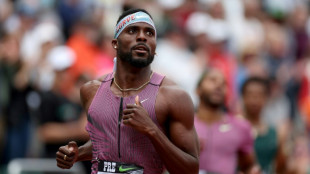
-
 'Lucky number seven' for Ruud after beating Draper to clinch Madrid Open
'Lucky number seven' for Ruud after beating Draper to clinch Madrid Open
-
China's Zhao leads Williams 11-6 in world snooker final

-
 Far-right candidate tops Romania's presidential rerun
Far-right candidate tops Romania's presidential rerun
-
Ryu takes wire-to-wire win at LPGA Black Desert Championship

-
 Marseille held by fellow Champions League hopefuls Lille
Marseille held by fellow Champions League hopefuls Lille
-
'Lonely' Palou cruises to win at IndyCar Alabama Grand Prix

-
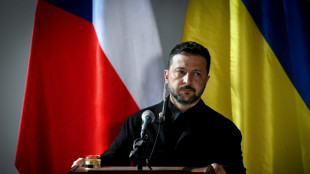 Zelensky says does 'not believe' Russian truce pledge
Zelensky says does 'not believe' Russian truce pledge
-
US Fed expected to pause rate cuts again, await clarity on tariffs
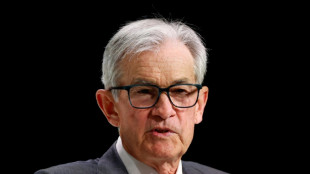
-
 Ruud beats Draper to win Madrid Open and claim maiden Masters
Ruud beats Draper to win Madrid Open and claim maiden Masters
-
Far-right candidate leads Romania's presidential rerun

-
 Parag's six sixes in a row, Pant flops in IPL
Parag's six sixes in a row, Pant flops in IPL
-
Howe hails Newcastle's 'ruthless' Isak after VAR drama in Brighton draw

-
 Pant woes continue as Lucknow lose to Punjab in IPL
Pant woes continue as Lucknow lose to Punjab in IPL
-
'Thunderbolts' strikes big, topping N.America box office

-
 Kompany player-led shake-up returns Bayern to Bundesliga summit
Kompany player-led shake-up returns Bayern to Bundesliga summit
-
Leverkusen draw hands Kane's Bayern Bundesliga title

-
 Chelsea sink champions Liverpool, Man Utd crash at Brentford
Chelsea sink champions Liverpool, Man Utd crash at Brentford
-
Bielle-Biarrey lifts Bordeaux past Toulouse and into Champions Cup final

-
 Chelsea beat champions Liverpool to boost top five push
Chelsea beat champions Liverpool to boost top five push
-
Hammers' Potter reveals Paqueta's tears of frustration at Spurs draw

-
 Lyon's Champions League hopes hit by loss to Lens
Lyon's Champions League hopes hit by loss to Lens
-
Israel vows retaliation against Iran, Yemen's Huthis over airport attack

-
 Man Utd 'need to change' after Brentford loss: Amorim
Man Utd 'need to change' after Brentford loss: Amorim
-
China's Zhao dominates Williams 7-1 in first session of World Snooker final

-
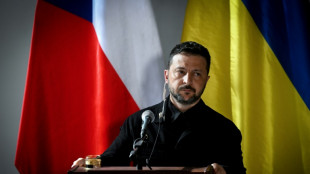 Zelensky says does 'not believe' Russian truce promises
Zelensky says does 'not believe' Russian truce promises
-
Bielle-Biarrey double lifts Bordeaux past champions Toulouse and into Champions Cup final

-
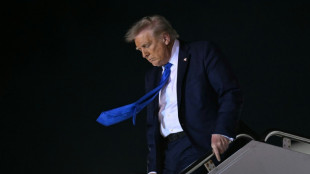 Trump says 'I don't know' if must uphold US Constitution as president
Trump says 'I don't know' if must uphold US Constitution as president
-
Brazil police foil Lady Gaga gig bomb plot

-
 Godolphin in full bloom as Desert Flower wins 1000 Guineas
Godolphin in full bloom as Desert Flower wins 1000 Guineas
-
Almeida wins Tour de Romandie as Evenepoel claims closing time-trial

-
 Bolsonaro leaves hospital three weeks after abdominal surgery
Bolsonaro leaves hospital three weeks after abdominal surgery
-
Man Utd crash at Brentford, Isak rescues Newcastle


Vital European defence startups still facing hurdles
Opportunities and investment have surged for European defence startups since Russia's invasion of Ukraine, industry players say, with shifts by governments and investors shaking up a sector long a byword for ponderous development.
Research published in February by the NATO Innovation Fund (NIF) and market analytics firm Dealroom found that venture capital going into European "defence, security and resilience" startups leapt 30 percent in the two years to 2024, reaching $5.2 billion.
That reflected a shift already under way before Russia's full-scale assault in early 2022 as "underlying technologies" began to be adapted for battlefield use, NIF partner Patrick Schneider-Sikorsky told AFP.
He named "additive manufacturing, AI, RF (radio frequency) technologies, battery technologies" as ingredients already attracting investment before "sheer necessity" supercharged their use and evolution on Ukrainian battlefields.
But the urgent need to develop state-of-the-art battlefield tech -- a constantly moving target in the crucible of Ukraine -- continues to run into hurdles.
Among the most stubborn is getting investors -- from sovereign wealth funds and public banks to pension funds or family offices of wealthy individuals -- to pump cash into defence, which is often lumped in with "sin stocks".
- 'Like gambling and drugs' -
One company that has run into this problem is German startup Donaustahl, which has rapidly evolved from making accessories for sports pistol shooting to developing armed drones.
Although it attracted widespread interest at last year's Berlin air and space trade fair, "Donaustahl, as a weapons company, has just been shut out from financing and the capital markets so far," founder Stefan Thumann told AFP.
It was "just like gambling and drugs", he complained.
While Thumann said he is now in talks with prospective investors, he also took the rare step of going directly to fans of his company, and via a social media presence, to raise cash by issuing digital bonds.
Getting around restrictions on defence or so-called "dual-use" technologies -- those with both civilian and military applications -- would require revising existing agreements on how funds can deploy investors' cash, or setting up altogether new funds, NIF's Schneider-Sikorsky said.
There have been some signs of movement from public institutions.
The European Investment Bank agreed last year to remove a requirement that "dual-use" companies it finances make at least 50 percent of revenue from civilian customers.
Looking from east to west among European governments, "you do see this very distinct gradient of appetites from more offensive things to more defensive things, from a tech perspective," said Jack Wang, UK managing director for venture capital company Project A.
For instance, Russia-neighbouring Estonia last year announced the creation of a 50-million-euro ($54.1 million) fund to invest in both defence and dual-use tech.
Pia Santavirta, chief executive of Finland's public investment fund Tesi, last month named "defence tech" among "future growth sectors" it was eyeing.
And private investors are scenting opportunity from the hundreds of billions in potential spending trailed especially by Berlin and Brussels in recent weeks, with Germany amending its constitution to enable more borrowing to fund defence.
- 'Out in the cold' -
On the other end of the chain from investment is the end customer, where defence startups are confronted with military procurement systems used to taking years over deals.
"Most VC (venture capital) funds have got used to investing in software to sell to small businesses or consumers," Project A's Wang said, expecting their backing to "convert to revenue... within one-and-a-half, two years".
"The military sales cycle doesn't operate like that".
"Both cultures are going to have to change," said NIF's Schneider-Sikorsky.
Defence ministries may in future "have a defence tech company that is almost on contract with the military to produce and continuously upgrade capabilities, as opposed to just selling a bit of hardware that's going to be stockpiled," he added.
"Some countries just need to get away from their specific gold-trimmed solutions," Donaustahl chief Thumann urged.
"We don't have the time... I hope the German army will modernise its procurement system and do away with some super-complicated hurdles in tendering that leave small firms out in the cold."
A.Jones--AMWN